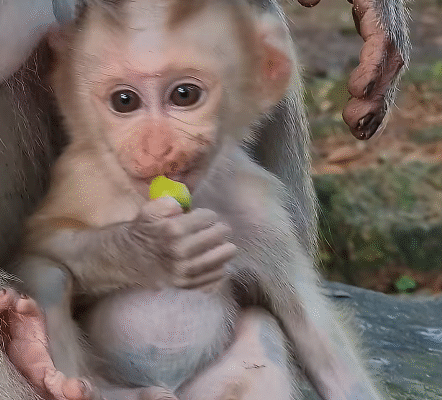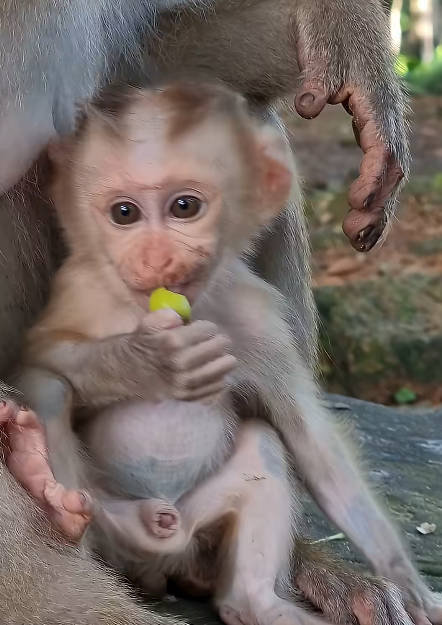
The gentle morning sun stretched across the countryside, casting a golden glow on the rolling fields and the small family farm tucked at the edge of the forest. It was the time of day when the world seemed soft and calm, except for the lively sounds of animals waking up. Clucks, bleats, chirps, and squeaks filled the air, all carrying the same message: breakfast, please!
For young Linh, this was the best part of her day. She loved nothing more than carrying her little basket of food, running barefoot across the grass, and feeding the farm’s adorable collection of baby animals.
“Feeding animals, cute baby animal!” she always sang, turning it into a playful chant. The animals seemed to know the song. Whenever they heard her voice, they gathered quickly, their tiny bodies bouncing with excitement.
The Baby Chickens
Her first stop was always the chicken coop. The door creaked open, and instantly, a flurry of fluffy yellow chicks came tumbling out, peeping and chirping. Their soft feathers glowed in the sunlight, and their little wings flapped clumsily as they hurried to her feet.
Linh sprinkled grains onto the ground, and the chicks went wild, pecking furiously at the scattered food. Their mother clucked in approval, keeping a watchful eye while her babies scrambled and chirped.
One chick was smaller than the others. It hopped slowly, pecking half-heartedly. Linh noticed and crouched down, holding a few grains in her palm. The tiny chick tilted its head, then bravely pecked right from her hand.
“You’re the bravest little one,” she whispered, giggling at the ticklish feeling of its beak against her skin.
The Baby Goats
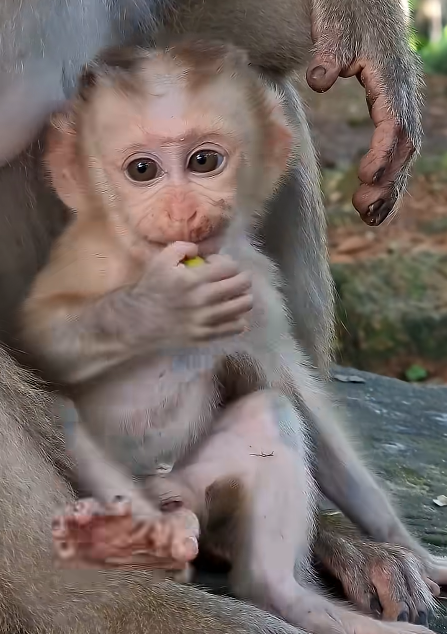
Next, Linh carried chopped vegetables to the goat pen. Two baby goats were already waiting by the fence, their tails wagging, their little horns barely visible. The moment she opened the gate, they bounded toward her, bleating with excitement.
They nudged at her basket, their noses cold and damp, their energy unstoppable. Linh laughed as one of them tried to climb onto her lap while the other tugged at the edge of her dress.
“Okay, okay! Food first, cuddles after!” she scolded playfully. She placed the vegetables in a shallow trough, and the goats dived in with happy crunches.
But true to their playful nature, one goat grabbed a piece of carrot and ran off, daring the other to chase. Soon, the pen echoed with the sound of tiny hooves, happy bleats, and Linh’s laughter.
The Baby Rabbits
Behind the barn was a small wooden hutch where a family of rabbits lived. Linh carefully opened the door, and a cluster of baby bunnies hopped forward. Their ears were too big for their heads, and their noses twitched endlessly.
She laid down handfuls of fresh lettuce and watched as the babies wiggled forward. They chewed so quietly that the only sound was the soft tearing of leaves. Their mouths moved in perfect rhythm, making Linh giggle again.
One bold bunny climbed onto her basket, curious about what else she carried. Linh gently picked it up, stroking its velvety fur. The bunny pressed its nose against her cheek, and she sighed with happiness.
“Feeding animals is the best,” she whispered. “Especially you cute baby animals.”
The Baby Ducks
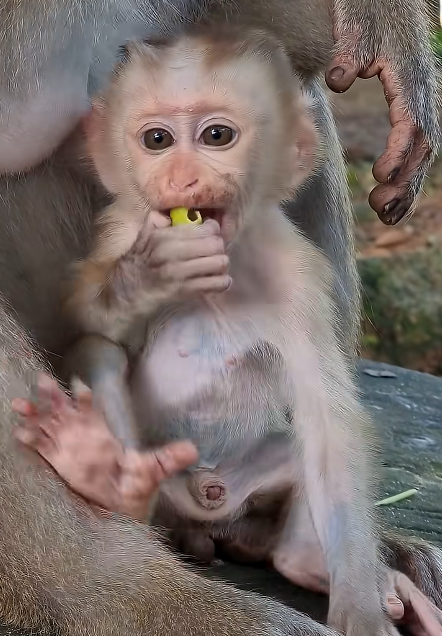
Down by the pond, the baby ducks were waiting. They waddled in uneven lines behind their mother, their yellow fluff shimmering against the water’s reflection.
Linh threw small handfuls of grain onto the pond’s surface. The ducklings immediately began paddling, their tiny webbed feet moving frantically as they chased the floating food. They quacked in high-pitched voices, splashing water everywhere.
One duckling, slower than the rest, couldn’t keep up. Linh scooped it gently into her hands, cradling it against her chest. She dipped her fingers into the grain and offered it directly to the duckling’s beak. It chirped softly and pecked gratefully, safe in her palms.
“You’re just like me,” she whispered. “Sometimes slower, but still special.”
The Baby Calf
At the edge of the barn, a newborn calf stood unsteadily on its legs, mooing softly. Its mother watched protectively, but she trusted Linh, who had been helping to care for the calf since its birth.
Carrying a large bottle of warm milk, Linh knelt beside the baby. The calf lapped at the teat eagerly, its tail wagging like a puppy’s. Linh held the bottle steady, smiling at the warmth of the moment.
When the calf was finished, it pressed its head against her shoulder, leaving little strands of soft fur on her clothes. She stroked its forehead and whispered, “Cute baby calf, you’re going to grow strong and big.”
The Puppies
Of course, Linh’s favorite part came last: the puppies. The mother dog had given birth to five little ones only weeks ago, and they were still clumsy, tumbling over each other like rolling balls of fur.
She brought a shallow bowl of soft food mixed with milk. The puppies yipped, their tiny tails wagging furiously as they crowded around. Their little noses dove into the bowl, and soon their faces were messy with milk.
Linh laughed so hard she fell back onto the grass. One puppy, too small to push through the others, whimpered softly. Linh picked it up and held a spoon to its mouth. The puppy licked eagerly, its eyes sparkling.
When they finished, the puppies piled together into a warm heap, already drifting to sleep. Linh stroked their bellies, her heart swelling with joy.
Lessons from Baby Animals
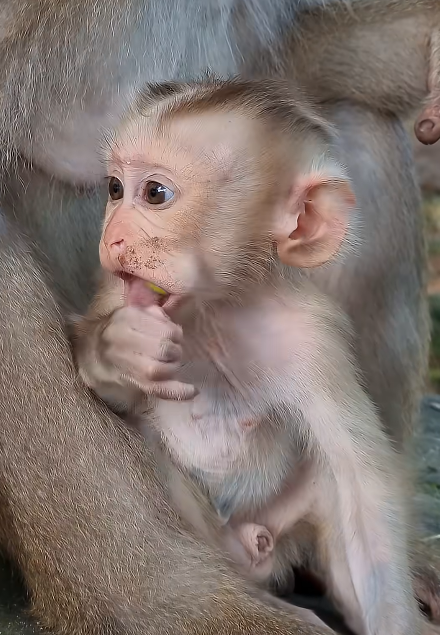
For Linh, feeding animals wasn’t just about giving them food. It was about love, patience, and learning.
- The chicks taught her to notice the smallest and weakest.
- The goats reminded her that play is just as important as work.
- The rabbits showed her the beauty of gentleness.
- The ducks reminded her that even if you fall behind, there’s always help waiting.
- The calf showed her the importance of care and consistency.
- The puppies taught her about unconditional love.
Every baby animal gave her a lesson, and she carried those lessons in her heart.
Evening Farewell
As the day ended, the farm grew quiet again. The sun dipped below the hills, and the animals settled into their nests, pens, and stalls. Linh made one last round, checking on each of her friends.
The chicks huddled beneath their mother’s wings.
The goats curled together in straw.
The rabbits snuggled close in their hutch.
The ducklings tucked under their mother’s feathers.
The calf lay beside its mother, breathing softly.
The puppies slept in a warm, furry pile.
Linh whispered goodnight to each of them. Her basket was empty, but her heart was full.
“Feeding animals, cute baby animal,” she murmured one last time, smiling as the stars began to shine.
Reflection
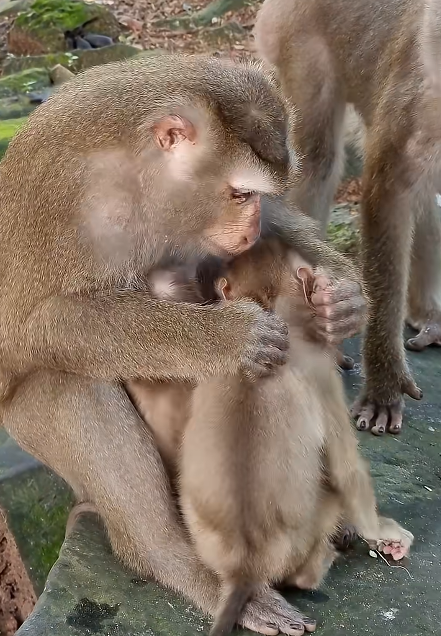
The story of feeding animals—especially baby animals—reminds us of life’s purest joys. In their innocence, they show us how simple things like kindness, care, and a full belly can mean everything. Baby animals rely on us for nourishment, but in return, they give us something even greater: unconditional trust and endless happiness.
So whether it’s a tiny chick pecking from your hand, a puppy licking your fingers, or a calf pressing against your chest, each moment of feeding becomes a memory you’ll carry forever.
Because in those small acts, we find something big: a reminder of the beauty of life itself.
